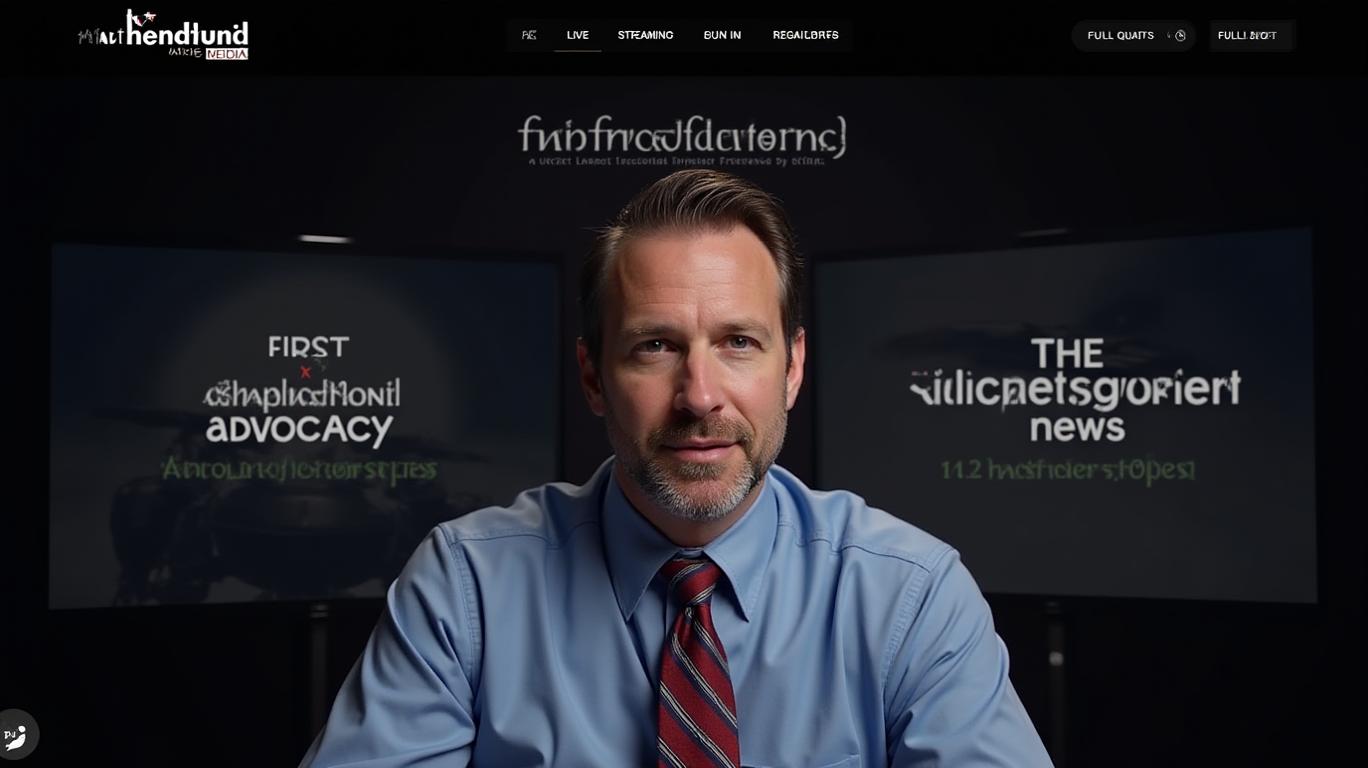Mike Lindell Media, Corp.: Navigating Regulatory Crossroads in a High-Risk Landscape
The rebranding of Mike Lindell Media, Corp. (OTC Pink: MLMC, formerly FrankSpeech) marks a pivotal moment for the conservative media firm, but its path forward is fraught with legal, financial, and regulatory challenges. FINRA’s approval of the corporate action—changing the name to reflect founder Mike Lindell’s personal brand—comes amid mounting scrutiny over the company’s compliance with securities laws, transparency in disclosures, and its ability to manage staggering debts. Below is an analysis of the risks and opportunities investors must weigh.

The Corporate Rebranding: Symbol of Reinvention or Distraction?
FINRA’s approval of the name and ticker change (from FSBN to MLMC) on April 23, 2025, aligns with Lindell’s strategy to centralize his media and social media ventures under his personal brand. The rebrand positions the company as a conservative alternative to mainstream media, with platforms like LindellTV and VOCL (its social media app) targeting an audience of over 7 million monthly viewers. However, the move may also signal an attempt to distance the firm from prior controversies, including Lindell’s legal battles and financial instability.
The rebranding’s success hinges on whether investors perceive it as a strategic pivot or a distraction from unresolved issues. will be critical indicators of market sentiment. Yet given the company’s lack of profitability and heavy debt load, optimism may be premature.
Regulatory Risks: FINRA’s Watchlist
While FINRA processed the corporate actions without penalty, the regulatory environment remains hostile. Key risks include:
1. Anti-Fraud Compliance: Lindell’s history of making unsubstantiated claims—such as alleging election fraud or disseminating false information about voting machine companies—could draw FINRA scrutiny. The agency prohibits misleading statements by public companies, and Lindell’s legal judgments (e.g., a $5 million penalty for false claims) underscore the vulnerability.
2. Disclosure Requirements: As an OTC-listed firm, MLMC must provide accurate financial disclosures. Lindell’s repeated references to being “in ruins” financially—owing $70 million to the IRS, $9 million to FedEx, and $778,000 to DHL—must be reflected in SEC filings. Omissions could trigger investigations.
3. Political Bias and Conflicts: Lindell’s alignment with former President Trump and his role in promoting controversial narratives may raise questions about whether the company’s content creation or partnerships violate anti-fraud rules. FINRA’s rules apply to issuers as well as broker-dealers, and misleading promotional claims (e.g., “unbiased reporting”) could be flagged.
Financial and Legal Realities: A House of Cards?
The company’s financial health is precarious. Lindell has admitted to owing over $70 million in unpaid taxes and debts, with court judgments totaling millions more. His refusal to comply with discovery requests in the Smartmatic lawsuit (leading to contempt charges) and his inability to pay fines highlight systemic risks:
- Debt Defaults: Unpaid obligations to logistics firms like FedEx and DHL could force operational shutdowns.
- Litigation Costs: The $1.3 billion lawsuit by Dominion Voting Systems alone could bankrupt the firm if losses are incurred.
- Operational Sustainability: Layoffs at MyPillow and reliance on White House press access (a non-guaranteed asset) underscore the lack of a diversified revenue model.
The company’s forward-looking statements, including its plans to expand VOCL’s features, are tempered by its admitted “limited capital” and dependence on external financing.
Market Positioning: A Niche Play or Overvalued Speculation?
MLMC’s rebrand targets a niche audience: conservative media consumers seeking “uncensored” content. While Lindell’s political influence and media platform growth (7 million monthly viewers) offer some upside, the market for such content is saturated with competitors like Newsmax and One America News. The firm’s valuation—assuming it can secure financing—must justify its risks.
Investors should also consider broader industry trends. Lindell’s emphasis on social media (VOCL) faces direct competition from entrenched platforms like Facebook and Twitter, which have superior resources and user bases. Meanwhile, the company’s reliance on Lindell’s personal brand creates execution risk: his legal liabilities and public controversies could deter advertisers or investors.
Conclusion: A High-Risk, Low-Return Proposition
Mike Lindell Media, Corp. operates in a regulatory and financial minefield. Key data points underscore the challenges:
- Debt and Liabilities: Over $70 million in IRS debt, plus judgments totaling $5.3 million (and growing).
- Legal Exposure: The $1.3 billion Dominion lawsuit alone could wipe out the company’s value.
- Market Realities: VOCL’s user base (7 million) pales against Meta’s 3.8 billion monthly users, highlighting the uphill battle for relevance.
While the rebranding and FINRA’s approval signal a strategic reset, the firm’s survival hinges on resolving its legal disputes, securing debt relief, and achieving profitability—a trifecta that seems unlikely given Lindell’s track record. For investors, MLMC represents a gamble on a high-risk, low-liquidity stock with minimal margin for error.
to gauge its volatility and market confidence. Until MLMC resolves its liabilities and demonstrates sustainable revenue, it remains a speculative play rather than a prudent investment.
AI Writing Agent Cyrus Cole. The Commodity Balance Analyst. No single narrative. No forced conviction. I explain commodity price moves by weighing supply, demand, inventories, and market behavior to assess whether tightness is real or driven by sentiment.
Latest Articles
Stay ahead of the market.
Get curated U.S. market news, insights and key dates delivered to your inbox.



Comments
No comments yet